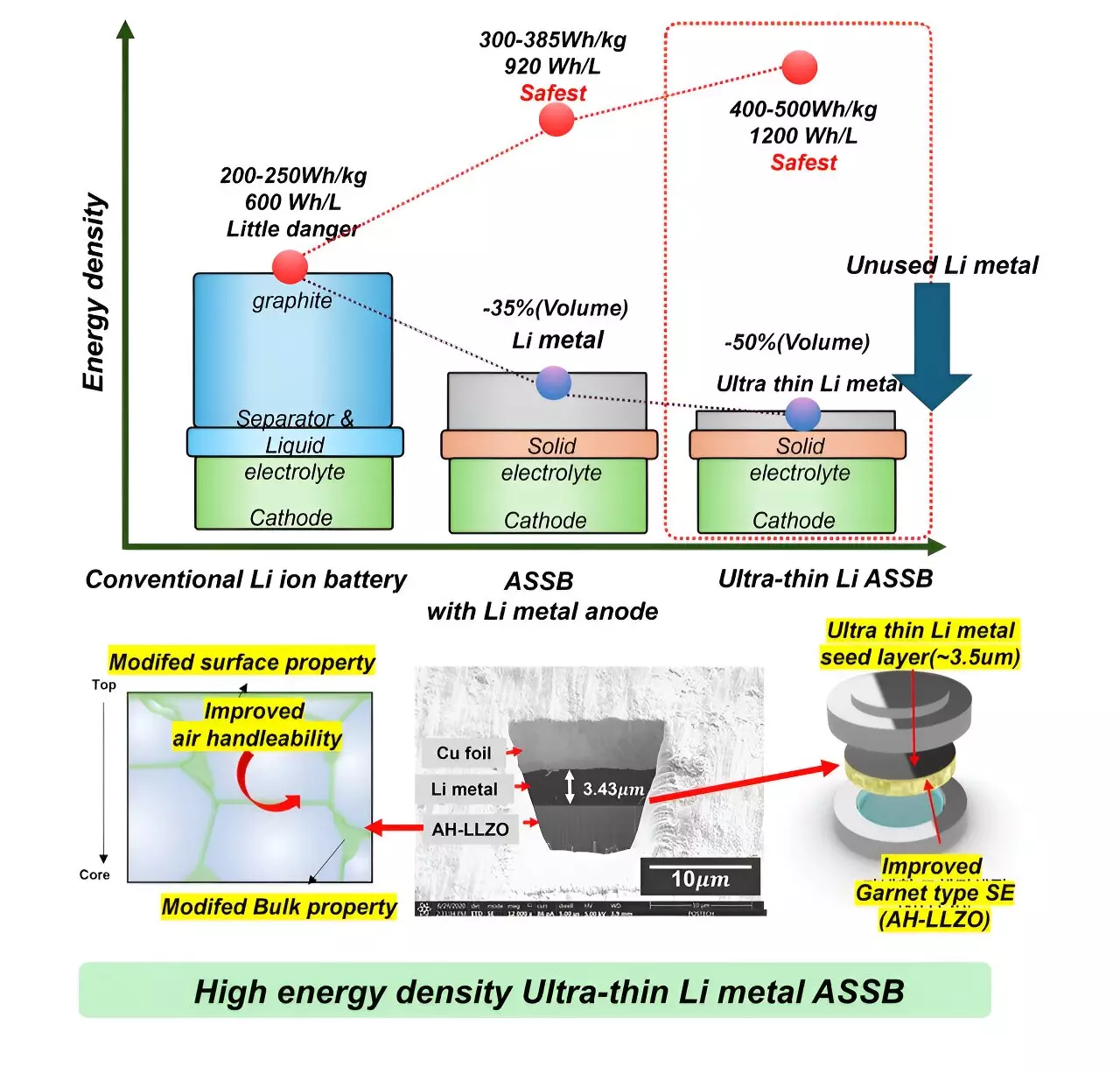In the quest to overcome life’s challenges, we often tend to complicate things by employing intricate solutions. However, sometimes the key to resolving complex problems lies in simplifying our approaches and getting to the core of the issue. This principle was expertly demonstrated by a team of researchers at Pohang University of Science and Technology (POSTECH) in their recent work on addressing the challenges associated with solid-state batteries.
Solid-state batteries have been hailed as the next generation of batteries due to their enhanced energy density and safety compared to traditional liquid-electrolyte batteries. Among these, the garnet-type oxide solid electrolyte, known as LLZO, has garnered attention for its high ionic conductivity. However, LLZO is susceptible to contamination from exposure to air, leading to the formation of a resistive layer that hinders battery performance. While existing methods involve coating or post-synthesis treatments to mitigate these issues, they fall short of providing a permanent solution.
Instead of focusing on external fixes, the research team decided to tackle the root cause of the problem by developing an air-handleable LLZO (AH-LLZO) technology. This innovative solution aimed to improve both the surface and internal properties of LLZO, preventing contamination layer formation altogether. By creating a new hydrophobic compound within the material, the team successfully inhibited the reformation of contaminant layers when exposed to air.
The development of AH-LLZO facilitated the production of ultra-thin lithium solid-state batteries, with a thickness of approximately 3.43 μm, significantly thinner than a human hair. This breakthrough not only allowed for the production of batteries with a very low capacity ratio of the anode to cathode but also reduced the overall weight and volume of the battery while enhancing energy density. Moreover, the technology enabled the storage of batteries in the air without the need for specialized handling or facilities, making the process more streamlined and user-friendly.
The research conducted by Professor Byoungwoo Kang and Dr. Abin Kim at POSTECH exemplifies the power of simplicity in solving complex challenges. By focusing on the core issues and developing an innovative solution, they were able to address the inherent problems of solid-state batteries with remarkable success. This groundbreaking work not only paves the way for the advancement of battery technology but also serves as a reminder that sometimes, the most effective solutions are the simplest ones.


Leave a Reply